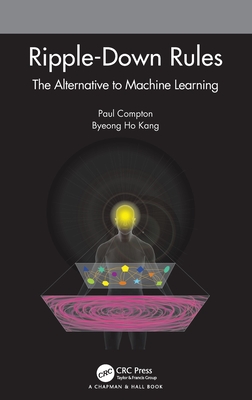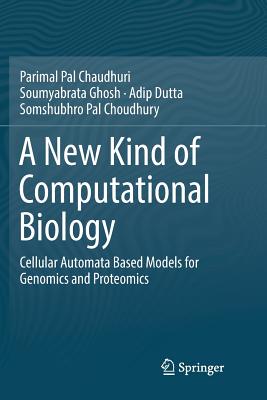Ripple-Down Rules: The Alternative to Machine Learning
暫譯: Ripple-Down 規則:機器學習的替代方案
Compton, Paul, Kang, Byeong Ho
- 出版商: CRC
- 出版日期: 2021-05-31
- 售價: $3,110
- 貴賓價: 9.8 折 $3,047
- 語言: 英文
- 頁數: 196
- 裝訂: Quality Paper - also called trade paper
- ISBN: 0367644320
- ISBN-13: 9780367644321
-
相關分類:
Machine Learning
海外代購書籍(需單獨結帳)
相關主題
商品描述
"In this era of deep learning, where is our deeper understanding of AI? The answer is, here, in this book. Compton and Kang's ideas are a 'must-read' for anyone working with AI. Based on examples of real-world applications, they show us a better way to use AI. If your AI models are confusing to understand and hard to maintain, then this book is for you."
Tim Menzies, Professor, North Carolina State University
Machine learning algorithms hold extraordinary promise, but the reality is that their success depends entirely on the suitability of the data available. This book is about Ripple-Down Rules (RDR), an alternative manual technique for rapidly building AI systems. With a human in the loop, RDR is much better able to deal with the limitations of the data.
Ripple-Down Rules: The Alternative to Machine Learning starts by reviewing the problems with data quality and the problems with conventional approaches to incorporating expert human knowledge into AI systems. It suggests that problems with knowledge acquisition arise because of mistaken philosophical assumptions about knowledge. It argues people never really explain how they reach a conclusion, rather they justify their conclusion by differentiating between cases in a context. RDR is based on this more situated understanding of knowledge. The central features of a RDR approach are explained, and detailed worked examples are presented for different types of RDR, based on freely available software developed for this book. The examples ensure developers have a clear idea of the simple yet counter-intuitive RDR algorithms to easily build their own RDR systems.
It has been proven in industrial applications that it takes only a minute or two per rule to build RDR systems with perhaps thousands of rules. The industrial uses of RDR have ranged from medical diagnosis through data cleansing to chatbots in cars. RDR can be used on its own or to improve the performance of machine learning or other methods.
商品描述(中文翻譯)
在這個深度學習的時代,我們對人工智慧的更深理解在哪裡?答案就在這本書中。Compton 和 Kang 的觀點是任何從事人工智慧工作的人都必須閱讀的內容。基於真實世界應用的範例,他們向我們展示了更好的使用人工智慧的方法。如果你的人工智慧模型難以理解且難以維護,那麼這本書就是為你而寫的。
—— Tim Menzies,北卡羅來納州立大學教授
機器學習算法擁有非凡的潛力,但現實是它們的成功完全依賴於可用數據的適用性。本書探討了 Ripple-Down Rules (RDR),這是一種快速構建人工智慧系統的替代手動技術。透過人類參與,RDR 能更好地應對數據的局限性。
《Ripple-Down Rules: The Alternative to Machine Learning》首先回顧了數據質量的問題以及將專家人類知識納入人工智慧系統的傳統方法所面臨的挑戰。它指出,知識獲取的問題源於對知識的錯誤哲學假設。書中主張,人們從未真正解釋他們如何得出結論,而是通過在特定情境中區分案例來為他們的結論辯護。RDR 基於這種更具情境性的知識理解。書中解釋了 RDR 方法的核心特徵,並針對不同類型的 RDR 提供了詳細的實作範例,這些範例基於為本書開發的免費軟體。這些範例確保開發者能清楚了解簡單但反直覺的 RDR 算法,以便輕鬆構建自己的 RDR 系統。
在工業應用中已證明,構建 RDR 系統每條規則只需一兩分鐘,可能會有數千條規則。RDR 的工業應用範圍從醫療診斷到數據清理,再到汽車中的聊天機器人。RDR 可以單獨使用,也可以用來提高機器學習或其他方法的性能。
作者簡介
Paul Compton initially studied philosophy before majoring in physics. He spent 20 years as a biophysicist at the Garvan Institute of Medical Research, and then 20 years in Computer Science and Engineering at the University of New South Wales, where he was head of school for 12 years and is now an emeritus professor.
Byeong Ho Kang majored in mathematics in Korea, followed by a PhD on Ripple-Down Rules at the University of New South Wales and the algorithm he developed is the basis of most industry RDR applications. He is a professor, with a research focus on applications, and head of the ICT discipline at the University of Tasmania."
作者簡介(中文翻譯)
保羅·康普頓最初學習哲學,後來主修物理學。他在加文醫學研究所擔任生物物理學家20年,隨後在新南威爾士大學的計算機科學與工程系工作20年,擔任系主任12年,現在是名譽教授。
姜炳浩在韓國主修數學,隨後在新南威爾士大學獲得有關Ripple-Down Rules的博士學位,他所開發的演算法是大多數行業RDR應用的基礎。他是一名教授,研究重點在於應用,並擔任塔斯馬尼亞大學資訊與通信技術學科的負責人。















